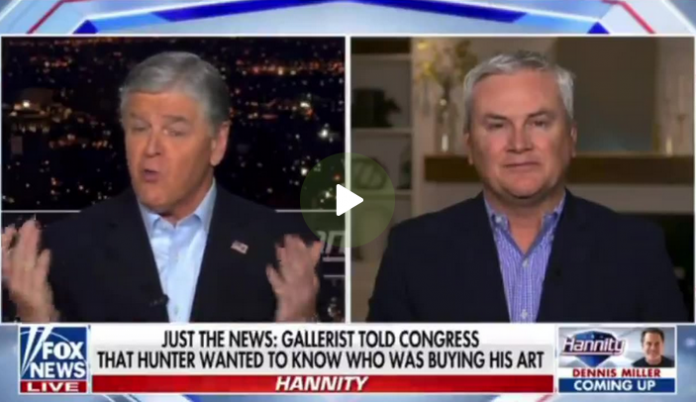George Berges, the art dealer responsible for selling Hunter Biden’s paintings, testified before Congress providing details that directly contradict the White House’s narrative on the matter. The testimony, reviewed by Just the News, sheds new light on the controversial art dealings of the President’s son and the involvement of Joe Biden himself. According to Berges, Joe Biden even called him directly.
Hunter Biden, a lawyer turned “artist,” has been represented by the prestigious Berges art galleries based in New York and Berlin. His artwork, ranging from photogenic to mixed media to the abstract, has been a subject of ethical scrutiny due to his father’s position as President of the United States.
Despite the White House’s repeated assurances of an ethics agreement ensuring arms-length transactions and anonymity of buyers, Berges’ testimony paints a different picture.
According to Berges, Hunter Biden likely knew the identity of 70% of the buyers, many of whom were Democrat donors. This is particularly striking as it deviates from the standard practice in the art world, where artists typically do not know who purchases their work.
Just The News reported:
“I believe in the first contract, he was—he was able to know who the buyers were,” Berges told investigators for the House Oversight and Judiciary Committees in a transcribed interview last week that was reviewed by Just the News. “…I don’t know how it was phrased or—but I remember that there—that that was the difference.”
“Is that normal or unusual, or where’s that? Is it a normal kind of contract?” Berges was asked.
“That part was different. Normally, the gallerist does not let the artist know who the collectors are,” the art dealer answered.
Berges said a subsequent art sale deal with the first son dropped the requirement for Hunter Biden to be informed. “The first one was that I was required to disclose who the buyers were. In the second one, I was required to not disclose the buyers,” he explained.
Berges was also asked how many of the 15 artists he represents now – except for Hunter Biden – wanted to know the identity of purchasers. “None,” he answered.Berges confirmed that none of the other 15 artists he represents had expressed interest in knowing the identities of their buyers, highlighting the unusual nature of Hunter Biden’s request.
Moreover, Berges disclosed that he had two direct contacts with President Joe Biden. These interactions included a phone call and an in-person meeting at the White House during Hunter Biden’s daughter’s wedding. This testimony is in stark contrast to the Biden White House’s public statements, which have consistently denied any involvement or knowledge of Hunter Biden’s art dealings.
The New York Times reported in August 2021 that Hunter Biden’s art was being offered for as much as $500,000 apiece, with his art dealer claiming to follow ethics guidelines developed by the Biden administration. However, Berges’ testimony suggests a lack of communication with the White House regarding these supposed ethics agreements.
The implications of the testimony not only raise questions about the ethical conduct of the President’s son but also bring into question the integrity of the Biden administration’s public statements. The involvement of high-profile Democrat donors and the apparent breach of the promised anonymity of buyers add layers of complexity to an already contentious issue.
Berges’ account mirrors earlier testimony by Devon Archer, a former Hunter Biden business partner, who revealed Joe Biden’s involvement in his son’s foreign business dealings. The revelations contradicted the President’s previous denials of any contact with Hunter’s business associates.
As the impeachment proceedings continue, this testimony could prove to be a turning point.
